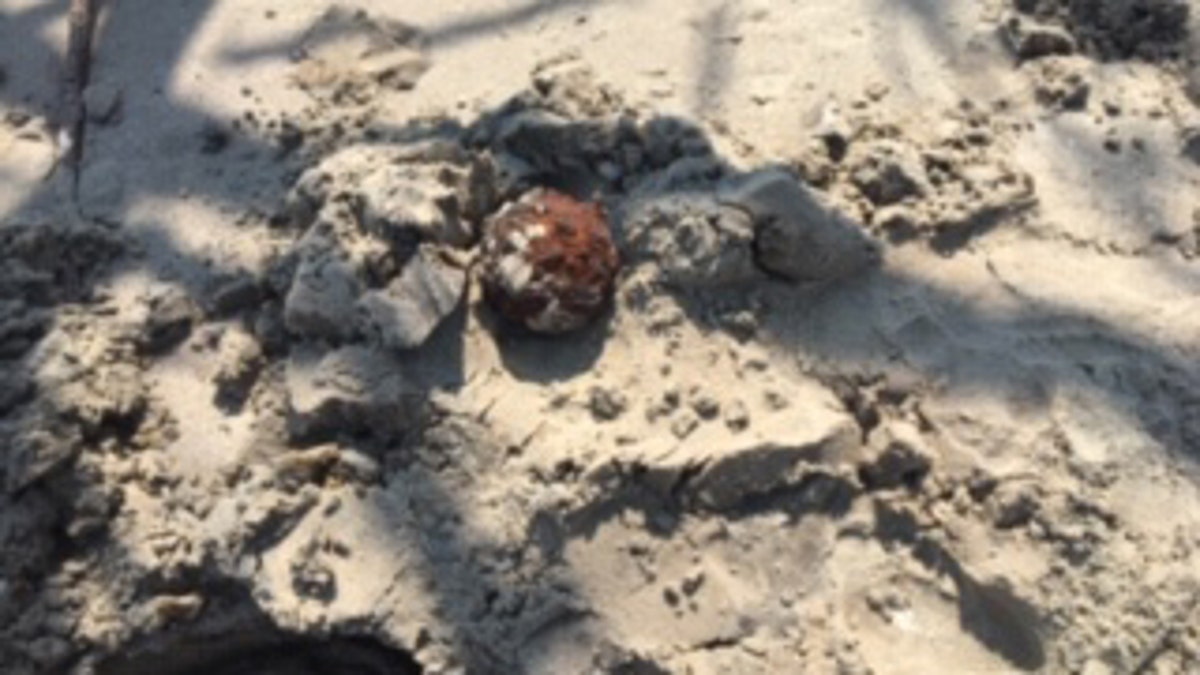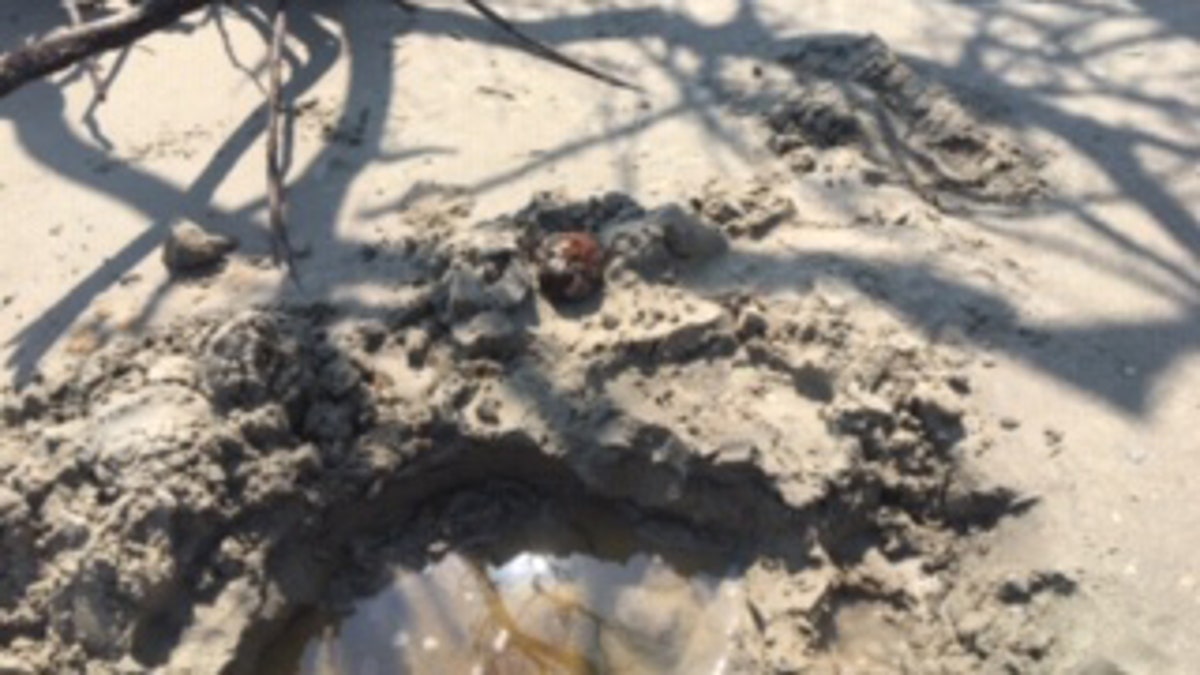Fox News Flash top headlines for Sept. 10
Fox News Flash top headlines for Sept. 10 are here. Check out what's clicking on Foxnews.com
Two Civil War cannonballs have been discovered on a South Carolina beach in the aftermath of Hurricane Dorian.
A spokesman for the city of Folly Beach told Fox News that some seashell hunters spotted a suspicious item in the area of the old Coast Guard Base at the east end of the beach. “It was reported to us as potentially older unexplored ordnance,” he explained via email. “As per our policy, we notified the Charleston County EOD [Explosive Ordnance Disposal] team who also responded and assisted with notifying the military EOD team.”
“It was determined to be a cannonball (one larger 8” shell and one 3” shell),” the spokesman added. “We were advised the military EOD team will handle disposing of the ordnance.”
Aaron Lattin told Fox News that he was one of the people that discovered the cannonballs on the beach.
DOES THIS PHOTO OF ULYSSES S. GRANT LOOK STRANGE TO YOU?
Folly Beach is located on Folly Island, a barrier island near Charleston.

The cannonballs were found in the aftermath of Hurricane Dorian. (Rocky Burke, deputy director of public safety, City of Folly Beach)
During the Civil War, the area was occupied by Union troops from 1863, according to the city’s website. The troops overcame “jungle-like foliage” to build roads, forts, an artillery battery, the city explains. “Eventually Folly Island had the capacity to hold up to 13,000 troops and their equipment,” the city says, adding that that island was used as a base for the battle to retake Fort Sumter.
This is not the first time that Civil War cannonballs have been found on a Folly Island beach. LiveScience reports that a pile of 16 corroded ordnances was uncovered as a result of Hurricane Matthew in 2016.
CIVIL WAR BATTLEFIELD DISCOVERY: SURGEON'S BURIAL PIT REVEALS SOLDIERS' REMAINS, AMPUTATED LIMBS
Civil War sites and artifacts from the era regularly offer fresh glimpses into the bloody conflict. A Civil War-era gravestone linked to the infamous Quantrill’s Raid, for example, was recently discovered in a Kansas forest.

Union Forces were based in the area during the Civil War. (Rocky Burke, deputy director of public safety, City of Folly Beach)
Earlier this year archaeologists in Delaware located the gravestone of a Civil War soldier that may provide a vital clue in uncovering a long-lost African-American cemetery.
Experts working at a property near Frankford, Sussex County, found the headstone bearing the name “C.S. Hall” and the details “Co. K, 32nd U.S.C.T.” This refers to Company K of the 32nd U.S. Colored Troops, which was a designation for African-American soldiers, according to Delaware’s Division of Historical and Cultural Affairs.
CIVIL WAR-ERA GRAVESTONE LINKED TO INFAMOUS QUANTRILL'S RAID DISCOVERED IN FOREST
The site is known to the local community as containing the remains of African-Americans who lived in the area, officials say.

The cannonballs were spotted by seashell hunters. (Rocky Burke, deputy director of public safety, City of Folly Beach)
Other Civil War finds have also been made in recent years. Last year, for example, the remains of two Civil War soldiers were discovered in a surgeon’s burial pit at Manassas National Battlefield Park in Virginia. Also in 2018, a vacationer on a North Carolina beach captured drone footage of Civil War-era shipwreck.
In 2017, forensic linguists said they had likely unraveled the mystery surrounding a famous Civil War-era letter, long believed to have been written by President Abraham Lincoln.
CLICK HERE TO GET THE FOX NEWS APP
In 2015, the remains of a Confederate warship were raised from the Savannah River in Georgia. The following year, the wreck of a large iron-hulled Civil War-era steamer was discovered off the coast of North Carolina. The ship, which was found off Oak Island, N.C., was tentatively identified as the blockade runner Agnes E. Fry.
Fox News’ Madeline Farber and the Associated Press contributed to this article.
Follow James Rogers on Twitter @jamesjrogers








































